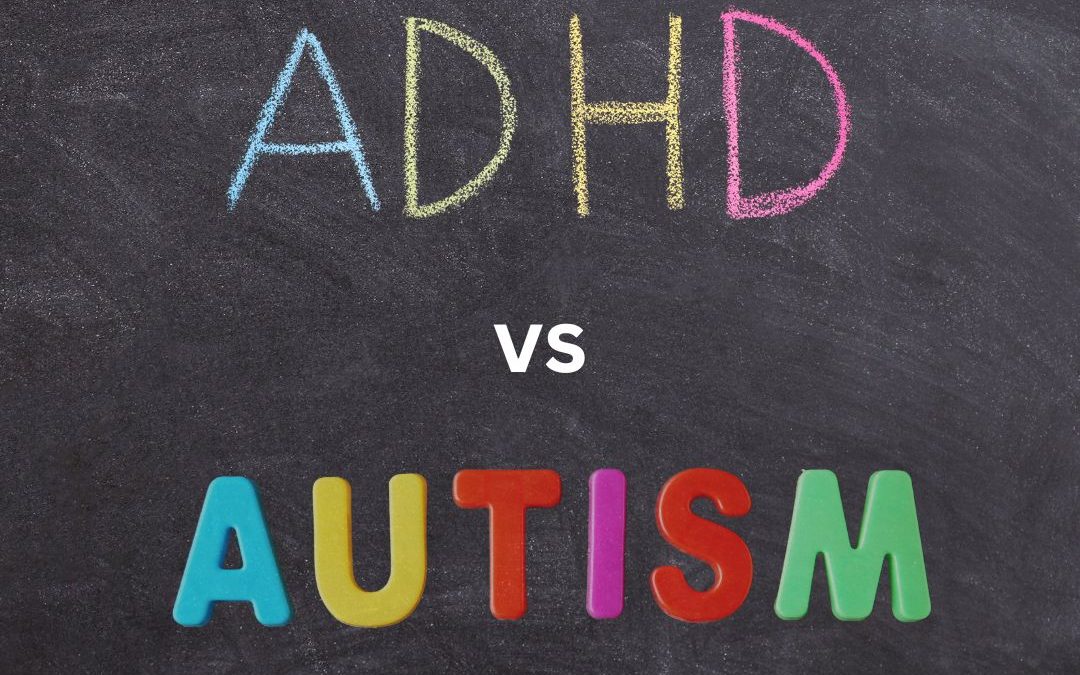At West Hills, we pride ourselves on delivering truly individualized instruction, and getting to know the in’s and out’s of each unique learner that comes into our classrooms. A label is never the primary decision maker of a student’s curriculum or education plan.
Obtaining a diagnosis, however, can help parents gain access to services that can improve the quality of life for the child, as well as give educators and therapists a starting point or framework to inform some of their actions.
Even when you have obtained a diagnosis, though, you may have some lingering questions and doubts. One common point of confusion is the distinction between ADHD and autism, as they are both neurological conditions that result in many of the same behaviors.
A Brief History of ADHD and ASD Diagnosis
Until recent years, the American Psychiatric Association would only allow a child to be diagnosed with either ADHD or ASD (autism spectrum disorder). When DSM-5 (Diagnostic and Statistical Manual of Mental Disorders) entered the picture, a child was now able to be diagnosed with both conditions.
Since then, it’s been discovered that ADHD and ASD often overlap. According to the CDC (Centers for Disease Control and Prevention), between 30 and 50 percent of children diagnosed with autism also exhibit ADHD symptoms. and 14 percent of those diagnosed with ADHD are diagnosed with autism.
What ADHD and ASD Have In Common
Part of the reason parents are often left wondering if symptoms their children display are a result of either ADHD or autism is because of their similarities in the way the conditions present. Children with either neurological condition tend to face challenges with:
- executive functioning skills
- social skills and peer interaction
- emotional regulation
- impulsivity
- sensory differences
- potential language delays
Once your child has been given either diagnosis, behavioral therapies and interventions will likely be part of the treatment plan for both autism spectrum disorder and ADHD.
The Reason Behind The Behavior Is Key
Children with either ADHD or autism exhibit many similar behaviors. What may be helpful is to consider the triggers of those behaviors in order to differentiate between the conditions.
Think about times when your child experiences meltdowns. If they are diagnosed with ADHD, this is likely due to frustration or a lack of impulse control. On the other hand, for a child with autism, the meltdown is triggered by anxiety, frustration, difficulty with communication, or sensory overload.
If the child with ADHD struggles with making friends and social skills, this might be due to the lack of impulse control or they are struggling to follow social rules, even though they understand them. Children with ASD often experience difficulty with making friends because they struggle to understand social cues or to relate to neurotypical children.
Unique to Autism Spectrum Disorder
Autism spectrum disorder is primarily identified by challenges communicating with others. Typical social interaction for many children with ASD can be difficult, as they may not pick up on social cues or understand the social rules.
Those with ASD also engage in repetitive and restricted behaviors like lining up toys, rocking, hand flapping, spinning, talking repeatedly about the same subject, or echolalia.
Unique to ADHD
ADHD centers around the ability to focus and manage one’s attention. Children diagnosed with ADHD may struggle with focusing on one task, rather than moving from one activity quickly to the next, and can easily become distracted. They may demonstrate impatience, resulting in difficulty taking turns, and boredom with tasks over time.
No matter what the potential diagnosis, it is always best to make a plan for the unique child. Whatever the child is struggling with should be where treatment options and interventions are introduced.
West Hills Academy is a one-of-a-kind institution built to serve the needs of learners who don’t fit in the mold required by traditional public school education, yet possess average or above average intelligence. If you feel your child could benefit from our program, don’t hesitate to reach out.
Resources:
https://www.additudemag.com/is-it-adhd-or-asd/
https://www.understood.org/en/articles/the-difference-between-adhd-and-autism
https://www.spectrumnews.org/features/deep-dive/decoding-overlap-autism-adhd/



